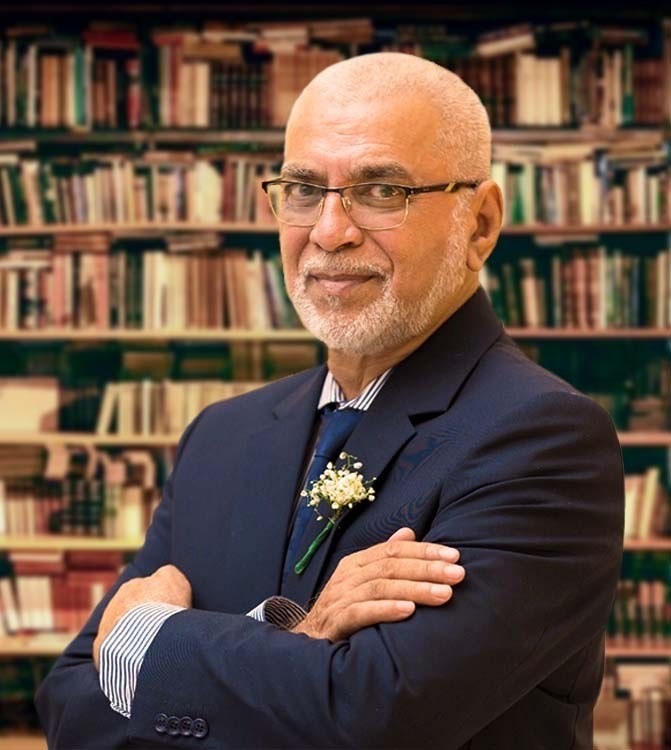The Muslim World should understand now the importance of unity among Islamic nations in confronting common threats, including the Israeli government. It is impossible to effectively counter these threats without a unified front among Muslim countries. This call for unity is a timely reminder of the challenges faced by the Muslim world and the strength that comes from solidarity.
France, US, Germany, Italy, UK have united instantly to support Israel in their devilish intentions to raze Gaza to the ground and have pledged full solidarity amid the ongoing wave of violence and an outrageous Israeli siege, which is currently depriving civilians in the Gaza Strip from basic human necessities such as electricity, water and food. The same authorities have failed to condemn incessant Israeli attacks on Gaza and Palestinians over the years, the country’s illegal settlement expansions in violation of U.N. resolutions, the raiding of houses of worship and a countless number of human rights violations against the indigenous Palestinian population. On the other hand, only few Muslim countries have timidly voice out their support and assistance for the cause of Hamas.
There is a dire need for resolving problems and misunderstandings among Muslim countries through dialogue, so that they can talk in a same voice and work for the common good of the Muslim community. In a world marked by complex geopolitical tensions, open and respectful communication becomes an essential tool for conflict resolution. This approach not only promotes peace and stability but also fosters understanding among nations with differing perspectives and interests.
They should take firm stance against the desecration of the Holy Quran and Islamic sanctities, highlighting the importance of freedom of speech that does not threaten the rights and freedoms of others. This stance reflects the delicate balance that many nations seek between upholding freedom of expression and protecting religious sensitivities. This Islamic principle should serve as a reminder of the responsibility that comes with exercising freedom of speech in a diverse and interconnected world.
However, they must acknowledge the significant role Iran plays in the Muslim world. This recognition of Iran’s position underscores the potential for Iran to contribute positively to regional and global issues. It also serves as an invitation for Iran to continue its constructive engagement within the Organisation of Islamic Cooperation (OIC) and the broader international community.
They should put on high records, Iran’s stance on critical matters affecting the Muslim world. Iran’s role as a host to millions of displaced Afghans, highlighting the interconnectedness of nations in addressing humanitarian crises and the potential regional impact of developments in Afghanistan. There should be political dialogue between Saudi Arabia and Yemen, reaffirming Iran’s commitment to regional stability through diplomatic conflict resolution. Furthermore, they should recognised the importance of the Muslim world’s support for Palestine, its people, and their resistance to the ongoing Palestinian-Israeli conflict.
Furthermore, they should express satisfaction with the positive negotiations between Iran and Saudi Arabia, signaling a potential shift in regional dynamics and a dedication to constructive engagement. These insights provide a glimpse into Iran’s multifaceted approach to regional and global issues.
The importance of dialogue, cooperation, and unity among Muslim nations in addressing common threats and challenges should be exemplified. It underscores the need for protecting Islamic sanctities while respecting freedom of speech and highlights Iran’s role as a key player in the Muslim world. Moreover, Iran’s stance on critical regional issues like Afghanistan, Yemen, and Palestine underscores its commitment to diplomatic solutions and regional stability. As the Muslim world faces evolving challenges, the message of unity and dialogue resonates as a beacon of hope for a brighter future.
They should call on the international community, especially the actors in the international arena, to correct the historical injustice inflicted on the Palestinian people by ending the Israeli colonial occupation and enabling the Palestinians to regain their legitimate rights, including their right to return, and the establishment of their independent state on the borders of June 4, 1967, with East Al-Quds as its capital, and the realization of the vision of the two-state solution based on the relevant United Nations resolutions and the Arab Peace Initiative, which still represents, with all its elements and natural sequence, a political and legal reference and a historic opportunity to achieve peace.
Finally, the whole Muslim community shows its appreciation and admiration for the Palestinian people who are steadfast in their land, defending their sanctities, it reaffirms its solidarity and unwavering support for its legitimate national rights and calls for strengthening support, solidarity, and support for the city of Al-Quds and its stationed people.
Bashir Nuckchady




![[Message de l’Eid-Ul-Fitr 2024] Atteindre la piété… Et après ???](https://sundaytimesmauritius.com/wp-content/uploads/2023/10/Bashir-new-218x150.jpg)


![[Democracy Watch Mauritius] The Rwanda genocide started 7th April 1994, 30 years ago. Has humankind learnt the lesson? Consider Israel’s action in GAZA today!](https://sundaytimesmauritius.com/wp-content/uploads/2024/03/democracy_0-218x150.jpg)







